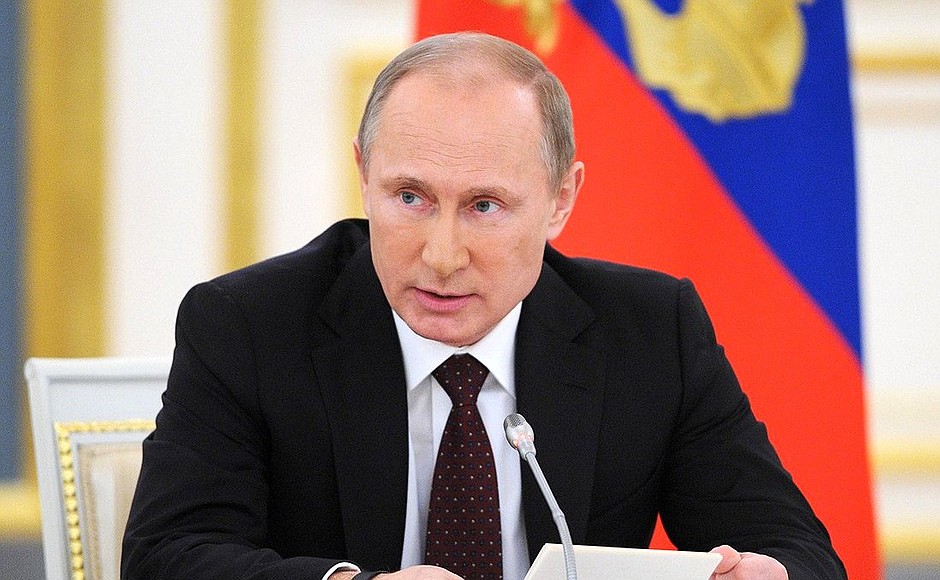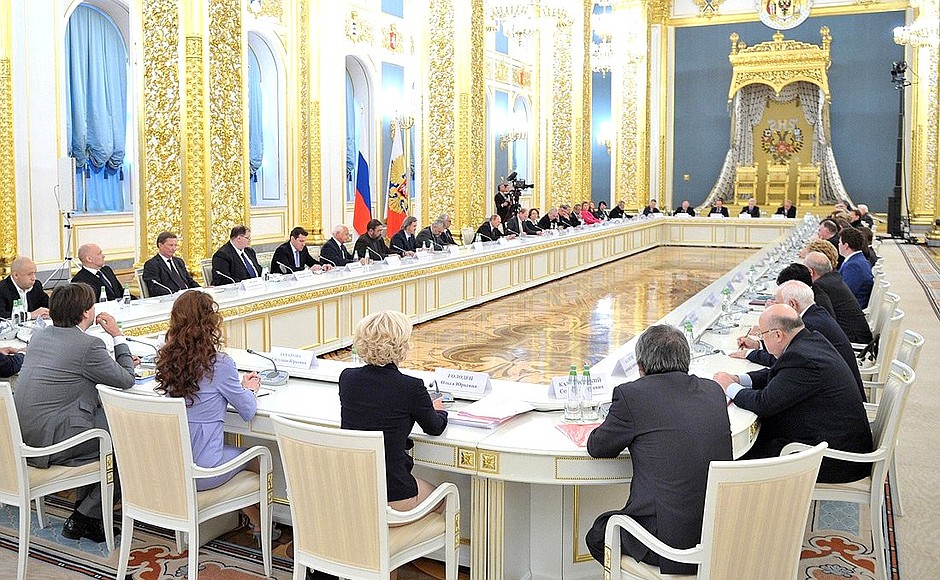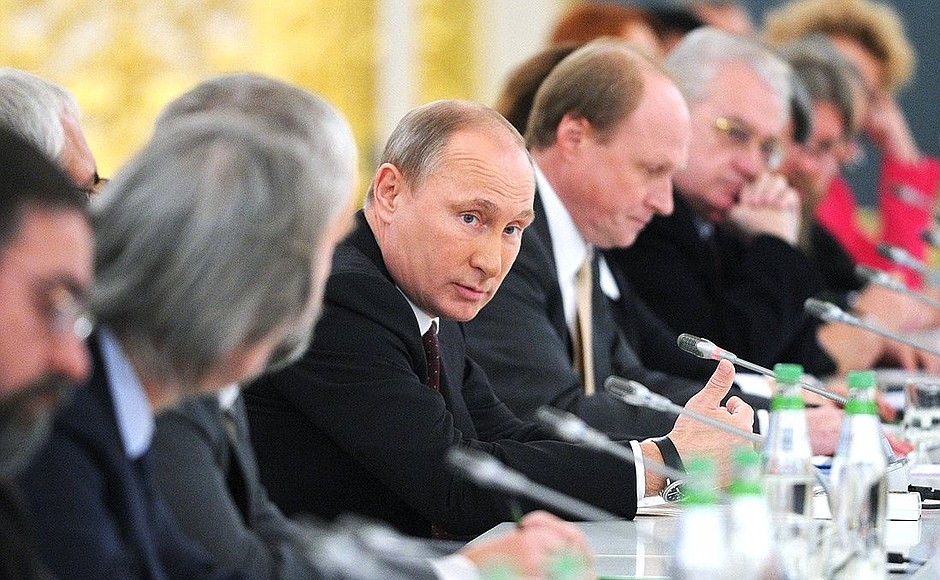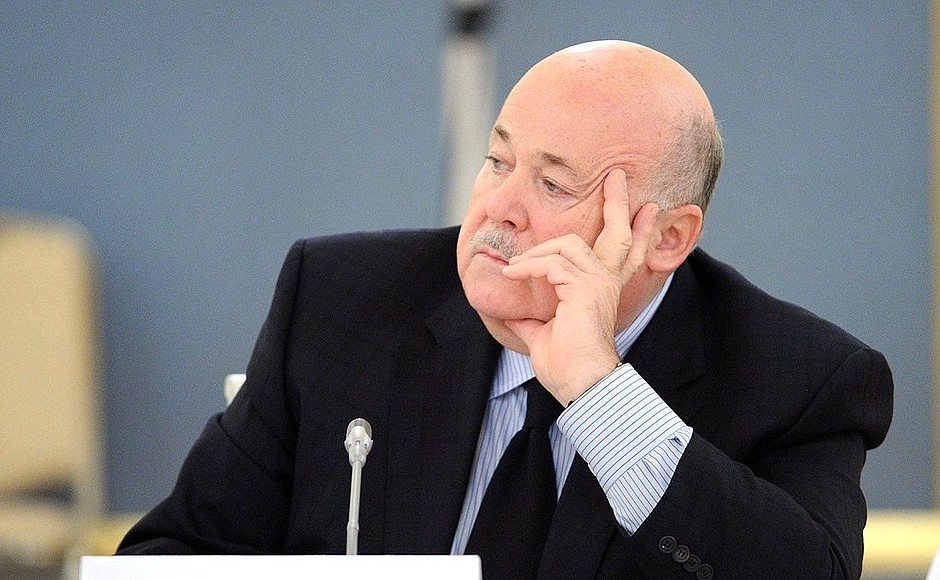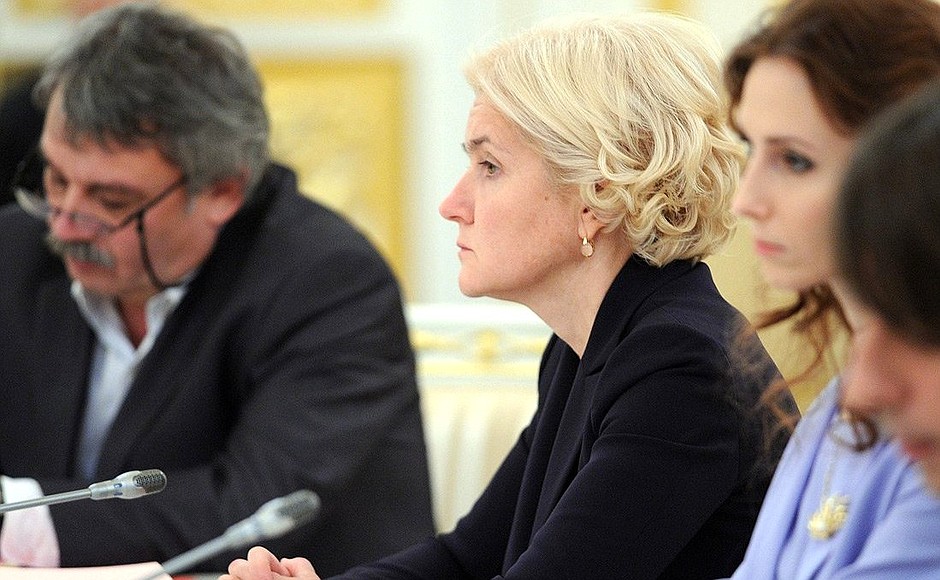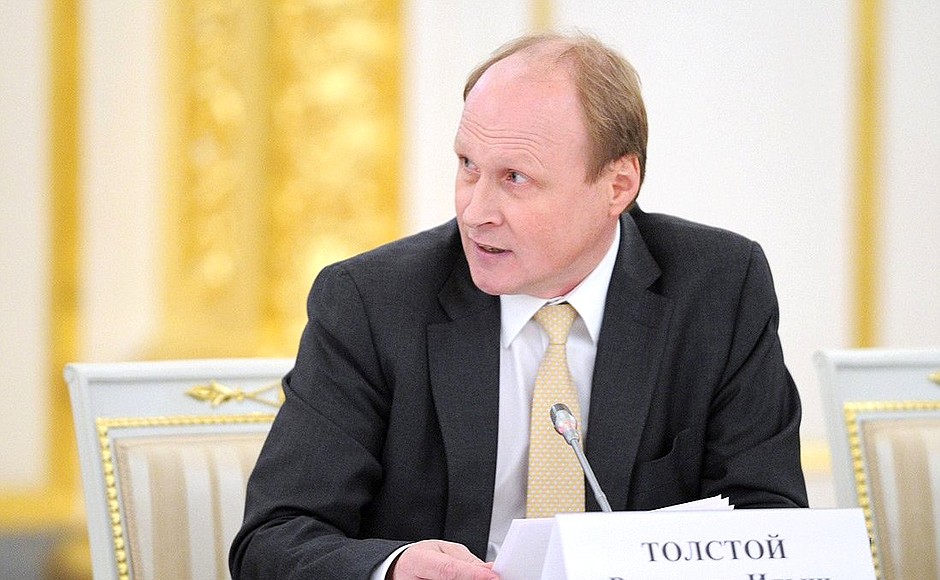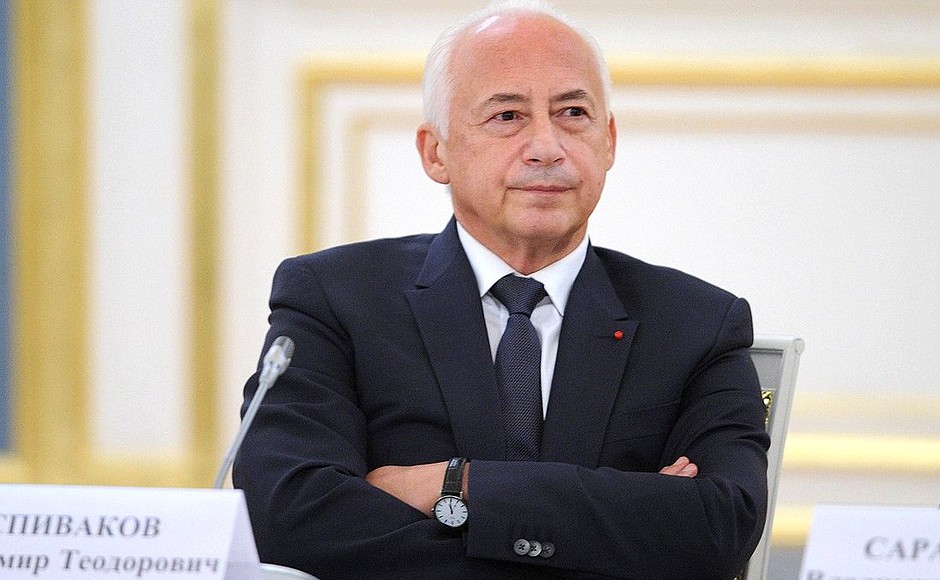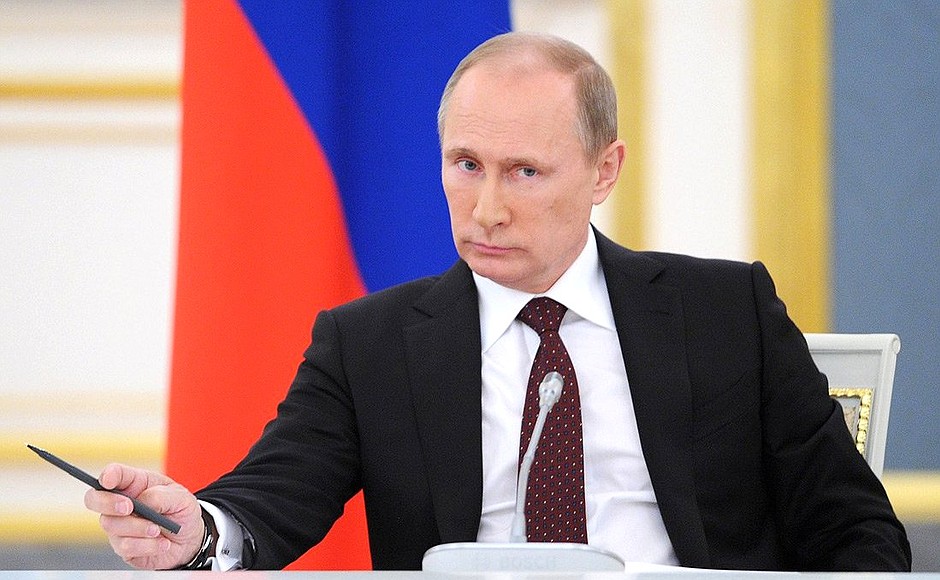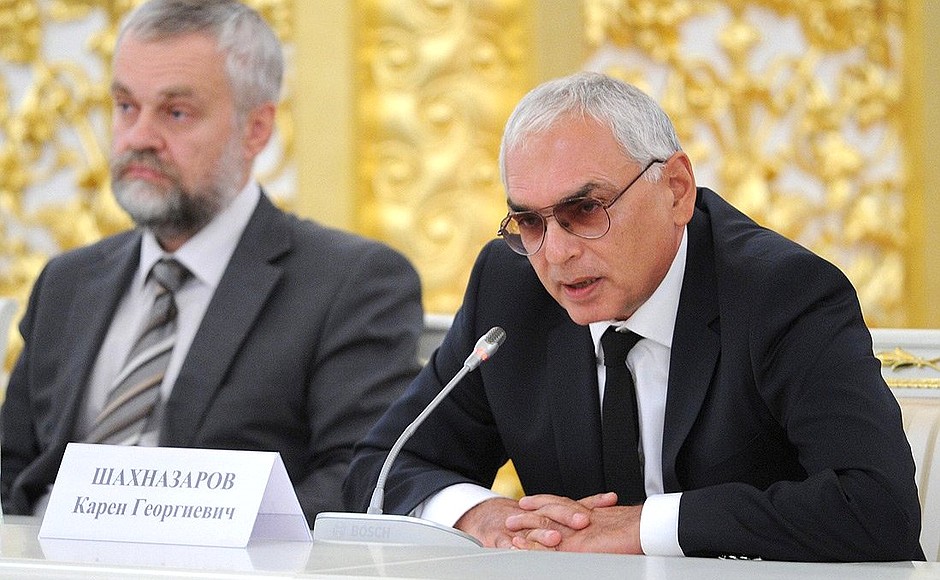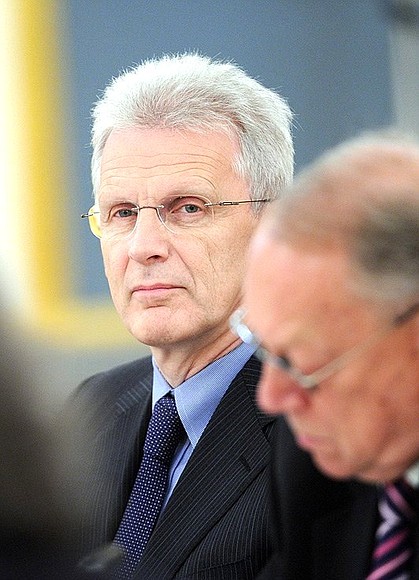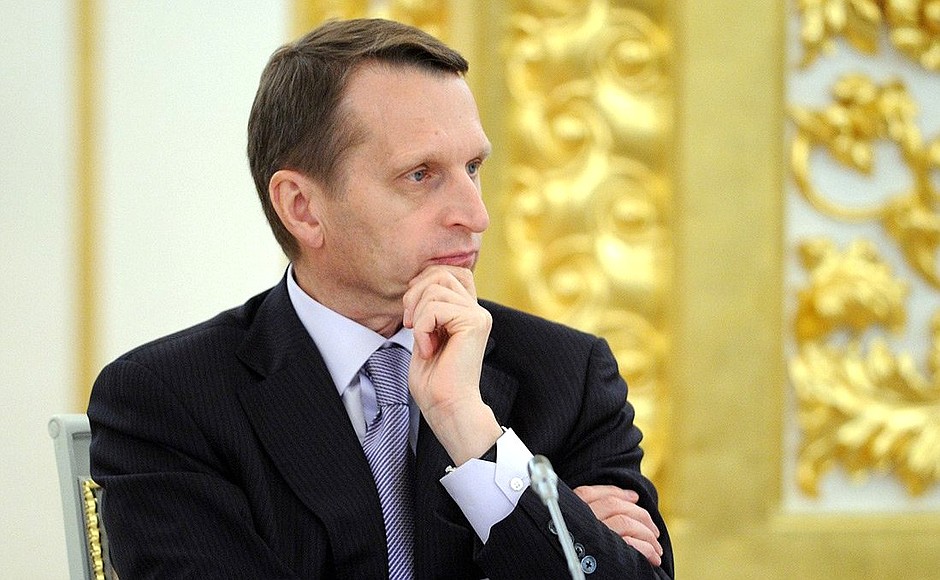The meeting is examining the role the state’s cultural policy plays in reinforcing the country’s unity and the importance of national culture in strengthening Russian identity. Other items on the agenda include establishing the priorities and principles for setting state cultural policy.
Opening remarks at a meeting of the Council for Culture and Art
President of Russia Vladimir Putin: Good afternoon, colleagues.
As you know, we have declared 2014 the Year of Culture in Russia. We hope that this will be a landmark event for our country in terms of raising and bolstering culture’s role in our society’s life.
Culture is essentially the collected moral and ethical values that form the foundation of national identity, are one of the key symbols of Russian statehood and historical continuity, and what unites us with other countries and peoples. Of course, all of us, the authorities and society, are responsible for our culture’s fate, current state and future prospects. We must not lose our cultural roots and all that was formed over the centuries by the various peoples and religions here and was saved and preserved for future generations at the most difficult turning points in our country’s history.
”We have declared 2014 the Year of Culture in Russia. We hope that this will be a landmark event for our country in terms of raising and bolstering culture’s role in our society’s life.“
This is why we are discussing the need to reflect on state cultural policy and look at the clear principles and guidelines that will give culture the pivotal part and not make it a sideline actor in developing our country, society and our human capital.
Of course, the authorities must work closely with the public on shaping cultural policy. No matter how good the ideas, they cannot work unless they have people’s support. This process should involve not only cultural figures themselves but also NGOs, the business community, patrons of the arts, and of course academics, economists, culture studies specialists, historians and political analysts. We must not sink into conservatism and rest upon our rich heritage alone. We must keep moving forward, set new cultural standards and make use of new experience, including world experience.
It is also important to make our culture policy objectives as clear as possible. Above all, they must be clear for our public, for our young people. We must create an environment in which it will be the norm, a way of life and vital demand for the young generation to have all-round education and be at home with classical and modern art, music and literature. Here, we need to work seriously on promoting and supporting fundamental art. It is the same as in science: fundamental research is costly and does not bring immediate returns, but without it scientific thinking and progress come to a stop.
”All of us, the authorities and society, are responsible for our culture’s fate, current state and future prospects. We must not lose our cultural roots and all that was formed over the centuries by the various peoples and religions here and was saved and preserved for future generations at the most difficult turning points in our country’s history.“
Overall, I think the time is ripe to substantially rethink our culture policy and the state and municipal culture management system in general. Unfortunately, the practice of leaving culture to survive on the leftovers is very hard to eradicate. Culture is typically seen as just a ‘sub-branch’ of the social sector. It is perhaps very difficult to break this stereotype of treating culture as just entertainment, but we must do this. Our culture policy has to give culture the place it deserves.
We must not let culture become just a series of senseless reports on figures achieved and per capita results. It can be measured only by public recognition and the part it plays in forming individuals. We need a new, comprehensive system for evaluating the quality of the cultural environment and the effectiveness of the measures carried out.
Of course, education is essential for our culture’s future. At the Council’s last meeting we said that there needs to be a bigger humanities and arts component in education. Projects are underway now to revive choral and theatre groups in schools. This is a practice that time has proven to be highly beneficial. We need to develop this and other initiatives, and also the tradition of school class visits to exhibitions, concerts and performances. One can learn algebra or some other subjects in the classroom, but it is probably impossible to learn to fully understand and appreciate art just from teachers’ words alone. You need to see it with your own eyes.
”We must create an environment in which it will be the norm, a way of life and vital demand for the young generation to have all-round education and be at home with classical and modern art, music and literature.“
As for pre-school establishments, children need to start learning about good taste there too, while they are still at this young and most receptive age. This is the way to educate people who are literate and want quality arts products, and this in turn will lower the number of people who look only to mass culture, often of low quality. If we make museums, libraries and theatres an integral part of children’s lives, they will gain full appreciation of the cultural heritage of their country, people, ethnic group, and will be genuinely interested in developing what was handed down by the previous generations. This is the only way for us to preserve Russia as we inherited it from our forebears – a multi-ethnic, united, open and unique Russia – and ensure the quality of life that we all aspire to.
Colleagues, the work on forming the new culture policy must be organised systematically and comprehensively. It is particularly important to coordinate the efforts of all participants in this effort, clearly divide responsibilities and ensure that principles and priorities find a practical expression in relevant programmes and are clearly reflected in legislative acts. I hope the Council for Culture and Art will take on a large part of this work.
Colleagues, it is you who will work closely with the public and professional groups to set the main lines and basic reference points for state culture policy, which (you will see) will be enshrined in the relevant legislative and executive decisions. These basic guidelines will form the foundation for the strategy that the Government will draft later.
I ask the Presidential Executive Office to monitor closely all matters related to drafting of priorities for state culture policy.
<…>
